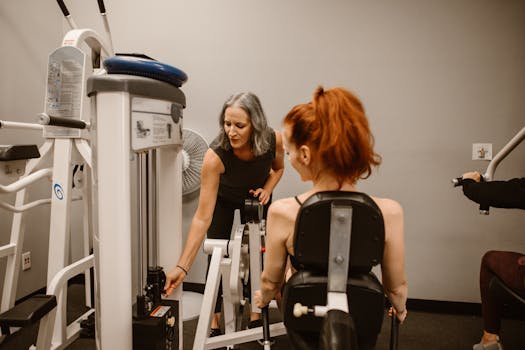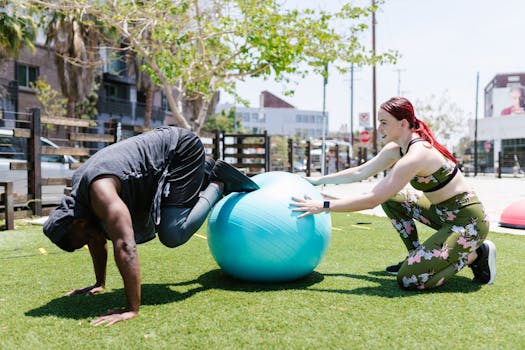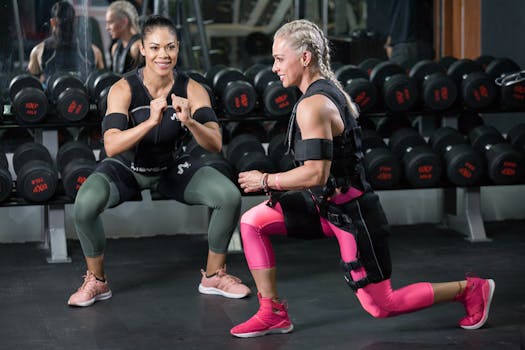You can do a recognised qualification in gym instructing or fitness instructing.
Entry requirements
There are no set entry requirements for this route.
Physical Training Instructors, often called PTIs, are professionals who help individuals and groups improve their physical fitness and overall health. In the UK, PTIs are widely employed in the armed forces, schools, leisure centres, and private fitness clubs. Their main responsibilities include designing and delivering fitness programmes, running exercise classes, assessing participants' fitness levels, and providing advice on nutrition and healthy lifestyles. PTIs also ensure that exercise is conducted safely and can adapt sessions for people with different abilities or goals. The role requires strong communication skills, enthusiasm, and a good level of personal fitness. PTIs often need qualifications such as a Level 2 or 3 Diploma in Fitness Instructing or Personal Training, and may undergo further training depending on their place of employment.

Physical Training Instructors in the UK typically earn between £21,000 and £35,000 per year, depending on experience and employer.
There are approximately 3,000 to 4,000 PTIs employed across the UK, with many working in the armed forces, schools, and fitness centres.
Most PTIs work around 37 to 40 hours per week, with some roles requiring weekend or evening shifts depending on employer needs.

Leads physical training sessions and develops fitness programmes specifically for members of the armed forces, ensuring they meet the physical standards required for service.

Works with pupils in schools to improve their skills and fitness in specific sports, often leading after-school clubs and organising competitions.

Provides one-to-one or small group fitness coaching, designing tailored exercise plans to help clients achieve their health and fitness goals.
Work on your own fitness through regular exercise and sport.
PTIs are expected to be role models for physical health, so maintaining excellent fitness is crucial. Join local sports teams, go to the gym, and try different types of exercise such as running, swimming, or cycling. Building your own fitness will also help you understand what it takes to support others on their journeys.
Study basic principles of exercise, anatomy, and nutrition.
You can learn about the human body, training methods, and healthy lifestyles through school sports science classes, online courses, or books. Understanding how exercise affects the body and how to design safe workouts is essential for a PTI.
Obtain GCSEs (including PE and English) and consider further study in sport or fitness.
Most employers expect a minimum of 4 or 5 GCSEs at grades 9 to 4 (A* to C), especially in Physical Education, English, and sometimes Science. You might also look into Level 2 or 3 Diplomas in Sport, Fitness, or Exercise Science, which can be taken at college after your GCSEs.
Achieve a recognised fitness qualification such as Level 2 Certificate in Fitness Instructing.
Many PTIs start by gaining a Level 2 Certificate in Fitness Instructing or equivalent. This is often a requirement for working in gyms and leisure centres, and will help you develop practical skills in leading group exercise sessions.
Volunteer or work in a fitness-related environment to gain practical experience.
Look for opportunities to help at local sports clubs, leisure centres, or after-school clubs. Experience working with people in a fitness setting will help you develop communication and leadership skills, and will look great on your CV.
Consider whether you want to work in the military, schools, leisure centres, or sports clubs.
PTIs work in a variety of environments. If you are interested in joining the armed forces, research the specific requirements for becoming a PTI in the Army, RAF, or Navy. Each service has its own application process and training.
Apply for PTI positions and undertake any necessary training or induction.
When you apply for PTI roles, you may need to pass physical fitness tests and interviews. If successful, you will receive on-the-job training specific to your employer, such as military PTI training courses or sports coaching qualifications.
Keep learning new techniques and keep your qualifications up to date.
As a PTI, you should regularly update your skills through workshops, new fitness courses, or additional qualifications such as Level 3 Personal Training or first aid. This will help you progress in your career and offer the best support to those you train.
Explore relevant apprenticeships that can help you kickstart your career in Physical Training Instructor (PTI). Apprenticeships offer hands-on experience and training while earning a wage.
This page showcases various career options and the pathways to reach them. Each career listed here shares transferable skills and knowledge, making it easier for individuals to transition between them.
Your current career is highlighted to help you see how it fits into the broader landscape of potential career choices. By clicking on any career, you can learn more about it, including the training and education required to pursue it.
Remember, progressing in your career often involves further learning and training. This page provides insights into future career options as well as those that can lead up to your current one.
These career progression decisions are informed by comparing the skills and knowledge needed for different occupations, along with data on how people move between them. Explore the possibilities and discover the exciting journey ahead in your career!
A Physical Training Instructor (PTI) is primarily responsible for developing and delivering physical training programmes to improve individuals' fitness and performance. Similarly, a Fitness instructor focuses on guiding clients or groups through exercises and fitness routines, making it the closest match in terms of qualifications and occupational focus.
You can get into this job through:
You can do a recognised qualification in gym instructing or fitness instructing.
There are no set entry requirements for this route.
You could do a Leisure Team Member Level 2 Intermediate Apprenticeship, or a Community Activator Coach Level 2 Intermediate Apprenticeship, to give you some of the skills needed for this role.
Employers will set their own entry requirements.
You could work as a leisure centre assistant and do part-time fitness qualifications on the job, which would allow you to apply for jobs as an instructor.
You can do qualifications through private training companies who offer specialist courses like:
You could train in a similar role as a physical training instructor in the armed forces.
You can find out more at:
It's useful to have a basic level of fitness and to know about how to maintain a healthy diet and lifestyle.
You can join the Chartered Institute for the Management of Sport and Physical Activity for professional recognition and development.
Explore other careers or use our AI to discover personalised paths based on your interests.
Address
Developing Experts Limited
Exchange Street Buildings
35-37 Exchange Street
Norwich
NR2 1DP
UK
Phone
01603 273515
Email
[email protected]
Copyright 2026 Developing Experts, All rights reserved.
Unlock expert-designed lessons, resources, and assessments tailored for educators. No credit card required.
Claim Your Free Trial →